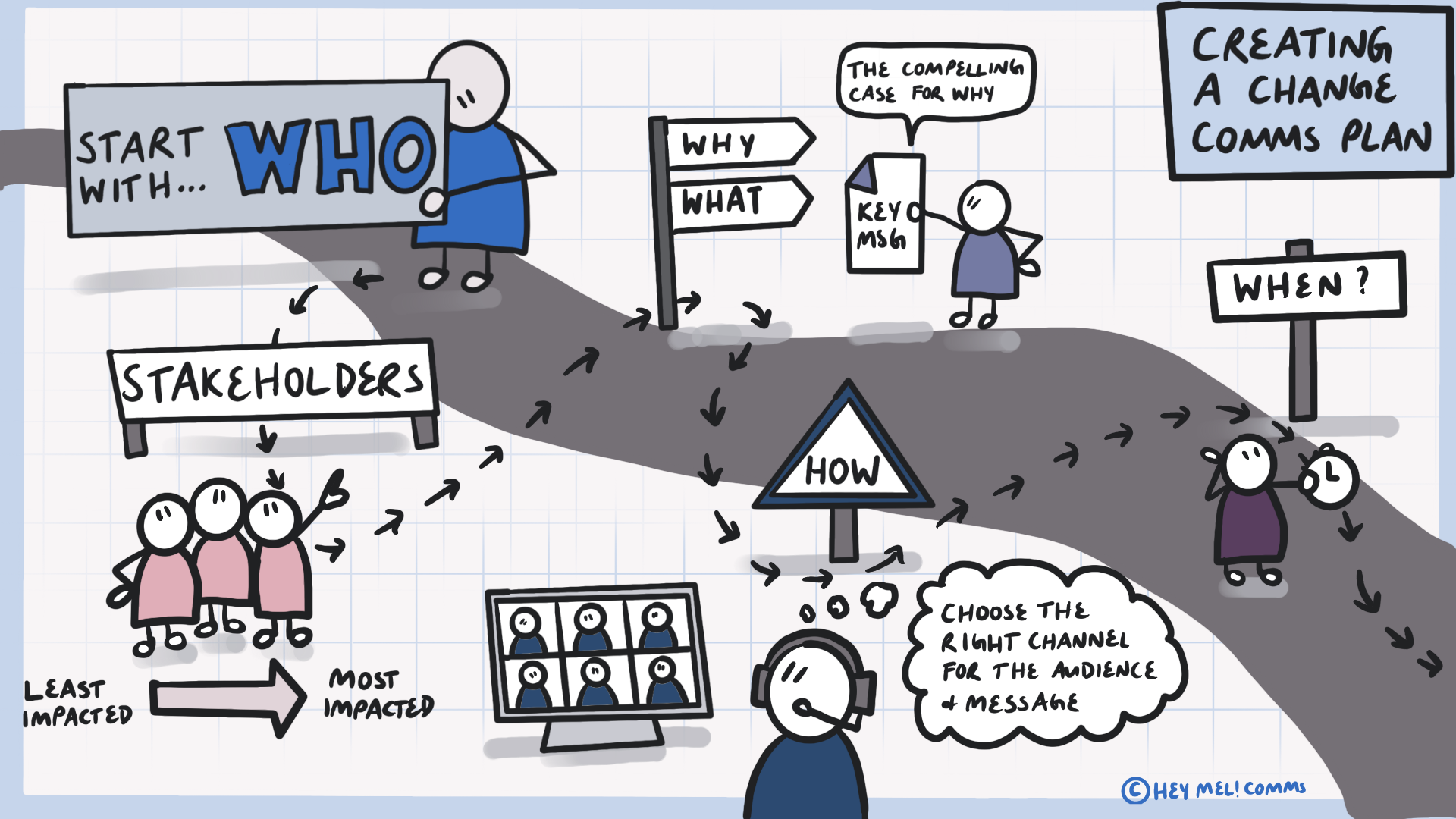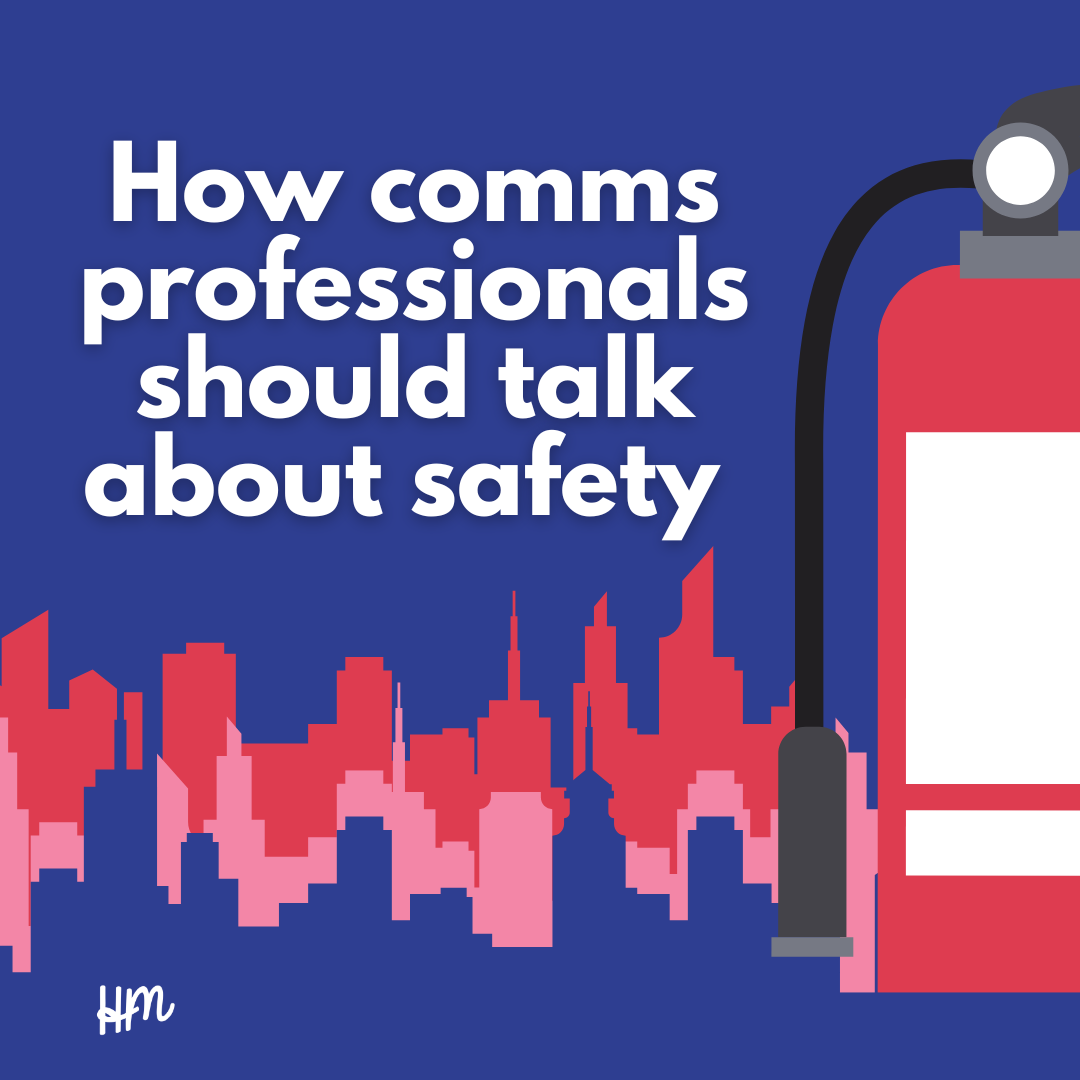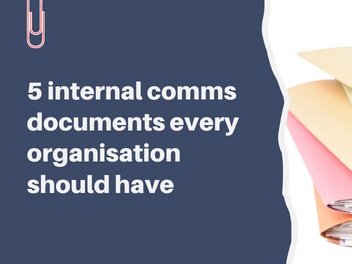
Blog
Short, snappy articles full of practical communication tips and insights.

View posts per topic
- accessibility 5
- apac 1
- artificial intelligence 7
- audience 101
- back to office 1
- behavioural science 2
- body language 1
- brand 10
- business 28
- business tips 73
- career 4
- case study 3
- change 45
- change communication 29
- channels 17
- charity 1
- communication tips 139
- confidence 1
- content 71
- corporate comms 85
- crisis 10
- culture 2
- cyber 1
- cyber attack 1
- data 1
- digital 5
- disaster 1
- dyslexia 1
- engagement rates 1
- eofy 1
- event management 1
- evolve 1
- evp 2
- external comms 58
- flexible 1
- funny 1
- future 1
- global 2
- guide 8
- hiring 1
- iabc 1
- improv 1
- internal comms 117
- job 1
- language 1
- leadership 17
- linkedin 2
- m&a 1
- measure 2
- mental health 1
Your 2026 planning to do list
As we inch toward the end of the year (how did that happen?), the collective pressure starts to rise because projects need wrapping, stakeholders want updates, and somewhere among the Christmas parties, EOY reports, and inbox avalanches - you know you’re supposed to be planning for 2026. So instead of diving straight into templates and tactics, let’s talk about the real starting point: creating the conditions for good planning.
Why strategic goals and values don’t stick (and how to make them stick)
Every organisation wants its people to “live the values” and “understand the strategy.” More often than not, most people don’t remember any of it. Not necessarily because they don’t care or they aren’t committed, but because organisations often forget one crucial thing: strategy and values only matter if people can feel them, not just read them. So, how does this fail and what can we do to address it?
Why the same change strategy works in one organisation, but fails in another
Every organisation sets out on its change journey with the same ambition: to move forward, to evolve, to transform. Yet two organisations can start with the same vision, use the same consultants, adopt the same frameworks, and still end up in completely different places. So we’re discussing why the same change strategy works in one orgatisation, but fails in another.
5 ways comms has evolved and what smart businesses are doing about it
From the pandemic to AI, with shortened attention spans and higher expectations, it’s no lie that the last five years have been a crash course in adaptation. So, while we’ve evolved into our very new brand: Cuttlefish Communication, we thought it’d be a treat to look back at the five ways communication has evolved, and what smart businesses (that includes us!) are doing to stay ahead.
What comms means when we talk about alignment
The hard truth is: alignment isn’t a box to tick. It shifts as your strategy, people, and environment evolve. That’s why great leaders revisit the “why” often. They understand that clarity is fragile, and alignment builds collaboration, culture, innovation, performance. Which is exactly what we mean when we talk about alignment as communications professionals.
How to make your comms plan more effective
When was the last time you gave your communication plan a real health check? It might be time for a tune-up, and we’ve got some of the most common weaknesses in your comms plan right here. Plus, we’ve given you the fixes to make it work harder for your change initiatives.
How dyslexia awareness can improve your communications
October is Dyslexia Awareness Month and a reminder that not everyone processes words in the same way. With one in ten people living with dyslexia, it’s time to rethink how we communicate. Clearer messages don’t just help those with dyslexia, they make communication better for everyone. So, let’s explore how to do that in this blog, here!
How internal comms builds trust and resilience in times of crisis
Here in Australia, Spring has arrived and with it comes a season of warmth, new life, and, inevitably, disaster. Comms professionals here have seen it all when it comes to disaster responses; yet, through all those experiences, one thing always stands out: organisations are often far better at managing external crisis comms than internal ones.
How comms professionals should talk about safety
If the ultimate goal of safety communication is to change behaviour and prevent harm, then we have to ask: Is the way we’re talking about safety really working? The statistics suggest otherwise. So, how should communication professionals talk about safety?
Communicating through language barriers in the workplace
Diversity in our workplaces brings incredible richness, but it also comes with challenges, particularly when it comes to communication. For internal communicators, the stakes are high because it’s not just about making sure people feel included, but also about protecting health, safety, and productivity. So, how do we bridge the language divide and help every team member thrive? We’ve got six tactics that can make a real difference.
Why ‘engagement rates’ aren’t the right, or only, measure for comms success
When it comes to proving the value of internal communication, one word keeps cropping up: engagement. On the surface, it makes sense on its own because most organisations already run engagement surveys. The numbers are there, nicely benchmarked and easy to report, but here’s the problem: engagement isn’t a measure of communication effectiveness. It never has been. So if engagement isn’t the answer, what should communicators measure instead?
The leadership communication skills new leaders need
When people step into leadership without the right support, they tend to rely on what they’ve seen before. When communication is poor, the ripple effect is huge. But, there’s good news: you don’t need years of leadership training to make a real difference if you can focus on a handful of core communication skills, new leaders can immediately start building trust, clarity, and connection with their people. Which is why this blog is about the leadership comms skills every new leader needs.
Five frustrations in change and comms, and how to address them
Working in change or communications isn’t for the faint-hearted. Which is why we’re giving you give helpful tips on how comms and change professions can start managing frustrations and issues to resolve their comms problems.
How communication can dismantle workplace silos
When teams operate in isolation, communication breaks down, priorities clash, and trust erodes. Your culture suffers. So while communicators can’t transform culture single-handedly, we can help bridge divides and reduce the impact of silos…. and we’ve got four practical ways to start.
Why leaders need to invest in listening for their internal comms
We live in a world full of noise with emails, meetings, instant messages, updates, dashboards — the flow of communication in modern organisations is relentless. Leaders are encouraged to be visible, to share their vision, to cascade messages, and to be the face of change but somewhere in this constant talking, one of the most powerful skills in leadership often gets overlooked: listening as a leader and why it’s important for your internal comms.
Why your perfect communications can still fail
You can have the most perfectly formatted, beautifully written, logically sound message in the world… and still fail to move people, because communication isn’t just about transferring information. It’s about inspiring action and that only happens when your audience feels something strong enough to tip them into doing. So, how do you bring the emotion into your comms?
Making your comms stick in a not-for-profit world
With so many not-for-profits competing for attention, donations, and support, it’s harder than ever to cut through the noise. You’ve got a great mission, and you’re doing meaningful work, but if your communication doesn’t connect with the right people at the right time, it can all fall flat. So, read here to find out how to make your comms stick in the world of not-for-profits!
What to communicate when there’s no change to communicate
Change is no longer a phase. It’s the default setting. Which is exactly where it gets tricky for us communicators. You’re expected to keep people informed, engaged, and confident in the change, even when everything has slowed to a glacial pace. So, what do you actually say? How do you stay visible without resorting to fluff?
Mastering cross-cultural communication in the modern workplace
In today’s hyper-connected world, communication spans more than just time zones. It crosses cultural, political, and social boundaries, meaning you might find yourself leading a global team or collaborating with colleagues from a wide range of backgrounds. In this environment, cross-cultural communication isn’t simply a ‘nice to have’, it’s something you need to master in the modern workplace; so we’ll show you how!
How to turn boring updates into messages that matter
Most of us don’t wake up excited to read about a new expense policy or updated delegations of authority; yet “boring” updates like these can be the difference between smooth operations and costly mistakes. Which is why we’ve collated our top tips on making your comms engaging, even when they’re boring.

























